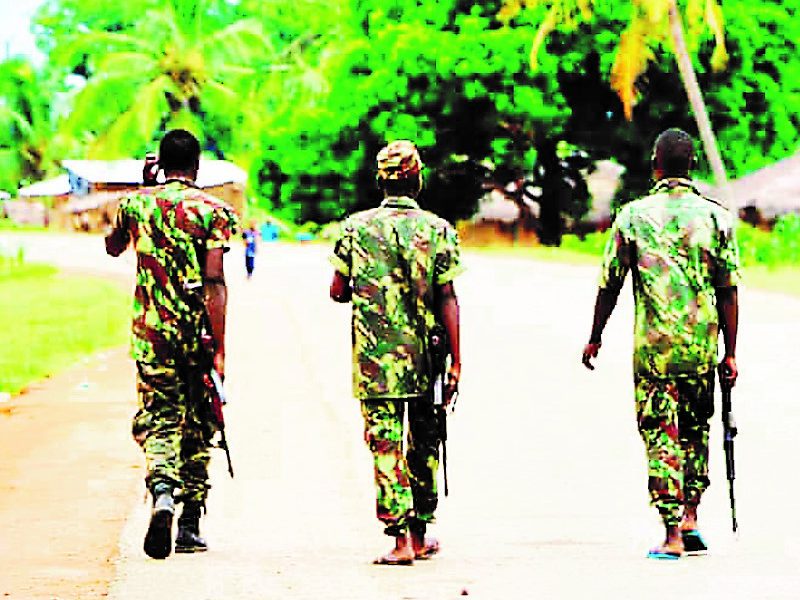SA
Islamist insurgents in Mozambique on region’s radar
Since October 2017, young armed Islamist fighters have been carrying out vicious attacks on civilians in the north-eastern Mozambican province of Cabo Delgado. Victims have been tortured, beheaded, and their homes have been burned.

STEVEN GRUZD
But due to restrictions on journalists and researchers visiting the area, “there is a lack of empirical data” on exactly who this mysterious movement is, and what it wants, said Dr Liazzat Bonate, a lecturer in African History at the University of the West Indies.
“They have become more and more secretive as they have been driven deeper into the bush. We don’t know who their leaders are, and we don’t know their objectives. They rarely appear in public compared to, say, Boko Haram in Nigeria, to announce their platform or agenda. Details are so sketchy. We need to know the history and biography of the leaders.”
Bonate was speaking last Wednesday in a Zoom webinar titled, “Unpacking insurgent violence in northern Mozambique” hosted by the Afro-Middle East Centre. Dr Yussuf Adam, a lecturer from Universidade Eduardo Mondlane in Maputo, also participated in the panel discussion.
Outside of Mozambique, this conflict has been ignored for a long time. But recent attacks and pictures of the insurgents sporting Islamic State (ISIS) flags has made the region sit up and take notice.
A high-level meeting in May of the security body of the Southern African Development Community pledged assistance to government efforts to eliminate the threat. Bonate said, “It’s not clear if the link with ISIS is very firm, or a strategic alliance for now.”
She said the movement sought to challenge the state, “to delegitimise it, and make people not abide by state laws, to defy police, courts, and secular justice. They want Sharia law [Islamic jurisprudence] applied instead.” Some have called the group “Al Shabaab”, which means “the youth” (not to be confused with the movement of this name in Somalia). It has also been called “Ansar al-Sunna” or “Ahlu Sunnah Wa-Jamo”, translated as “adherents of the prophetic tradition”.
Bonate said repressive government tactics had worsened rather than improved the problem, and had drawn more disaffected youth to the insurgency. “The government unleashed unprecedented violence on these youths, their wives, their families. Many were arrested and then released on lack of evidence. The insurgency has entered its third year, and the situation has worsened as it has become more violent and gruesome.”
Said Adam, “Problems between religion and state have a long history in Mozambique. Under the Marxist regime, it was an anti-clerical state for many years.”
Bonate also noted that this region, with a Muslim population of 58%, had been riven with internecine ethnic and political conflict for centuries. “Scholars have described the escalating violence as something new, emanating from neighbouring countries. But this region is in the Swahili-speaking world, and it’s not a new thing. Muslims have lived on this coastal belt from Somalia, through Kenya, Tanzania, and Mozambique for more than 1 000 years, since the 8th or 9th centuries. The question, therefore, is why the conflict has broken out here, and why now?”
Bonate believes the answer lies in the discovery of enormous oil and gas fields of the Cabo Delgado coast about a decade ago. The exploitation of these resources has enriched outsiders at the expense of the indigenous population. The timeline of the escalating violence ties in with these extractive industries.
Conflict has also brought in private security companies – often thinly-veiled mercenaries – from Russia, the United States, and South Africa. Adam said their involvement has complicated the picture. “There is an opportunity for business. There is a market for security. With cowboy-type mercenaries, there is a lot of collateral damage, a lot of lives lost.”
“The north has always felt abandoned, undermined, and ignored,” Bonate said. The hope after the end of the civil war in 1992 soon dissipated as young people grew disillusioned with the government. They have become more radicalised as opportunities have dried up, land has been taken away, and they have been brutalised by public and private security forces. Nearly 1 000 people have been killed and more than 100 000 displaced by this conflict. Funding has reportedly come from the heroin trade, illegal logging and mining, and human trafficking.
Both speakers doubted connections with Renamo (the Mozambican National Resistance), Mozambique’s long-time liberation-movement-turned-opposition party.
“Muslims from Mozambique are known to have fought in the wars in Afghanistan, Iraq, and Libya. I know this because they come home to be buried, and I have a friend in the casket business,” Adam said.
“There is a combination of being marginalised in the country and seeing huge wealth that they get no benefit from. The discontent is rising, and latches onto an Islamist ideology.”
It’s a threat the region can no longer ignore.